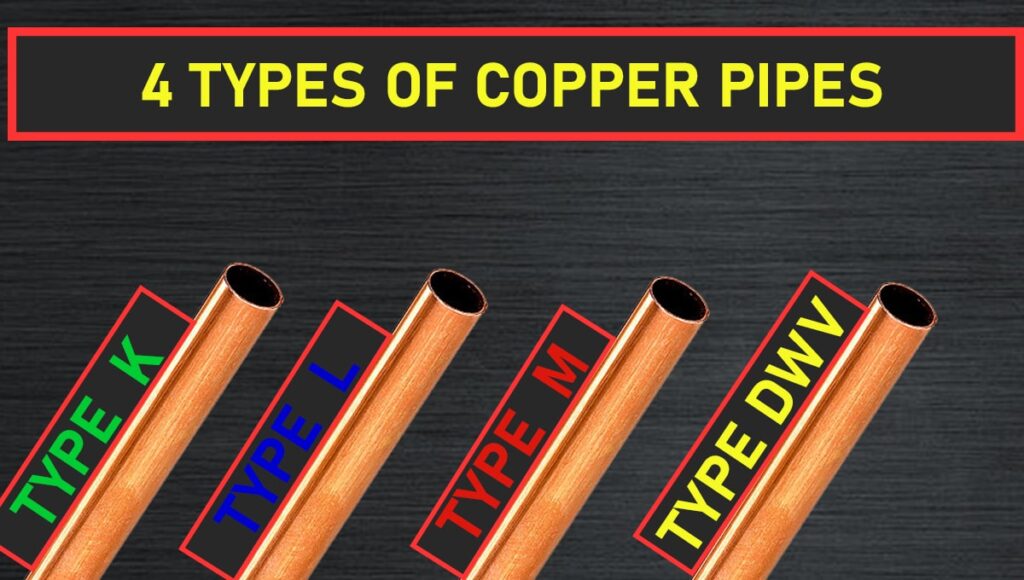In the world of copper pipes, there are two types. Soft and hard copper, soft copper can be bent and will get hard through work hardening. It can be softened again through annealing. Hard copper is created as a rigid pipe. There are 4 common types of copper pipes you will find. Type K, Type L, Type M, Type DWV. Each type has its respective purposes but you will find some pipes used in applications not intended for it. Here we will go into detail about each of these types of copper pipes
TYPE K:
Type K copper piping has green lettering on it. It has the thickest walls making it suitable for mainline water distribution. It is also rated to be buried underground. You can find these installed in industrial buildings with constant water flow as well. Because of its thickness, more material ultimately means more money. Compared to the other types of copper, type K is the most expensive.
TYPE L
Type L copper piping has blue lettering on it. It is the most popular type of piping today. It can be found installed in houses, you can also find it in commercial installations. It has a thicker wall than type M copper piping. Type L copper piping should be used for water distribution throughout a house, although you should always reference your local code regarding plumbing.
TYPE M
Type M copper piping has red lettering on it. This type of piping is used for heating systems in a house. Some people use it to run water distribution in a house but 10 to 15 years later the water velocity can deteriorate your piping to the point of pitting and causing leaks. The key difference between type L and type M copper piping is the pressure rating and wall thickness. Always use your local code regarding plumbing.
TYPE DWV
Type DWV copper piping has yellow lettering on it. It has the thinnest wall of all 4 types, because of this it is not rated for pressure. This makes it ideal for drainage, waste, and vent (notice how it’s named “DWV”). You will find it more common in newer house installations to use PVC piping in drainage systems
